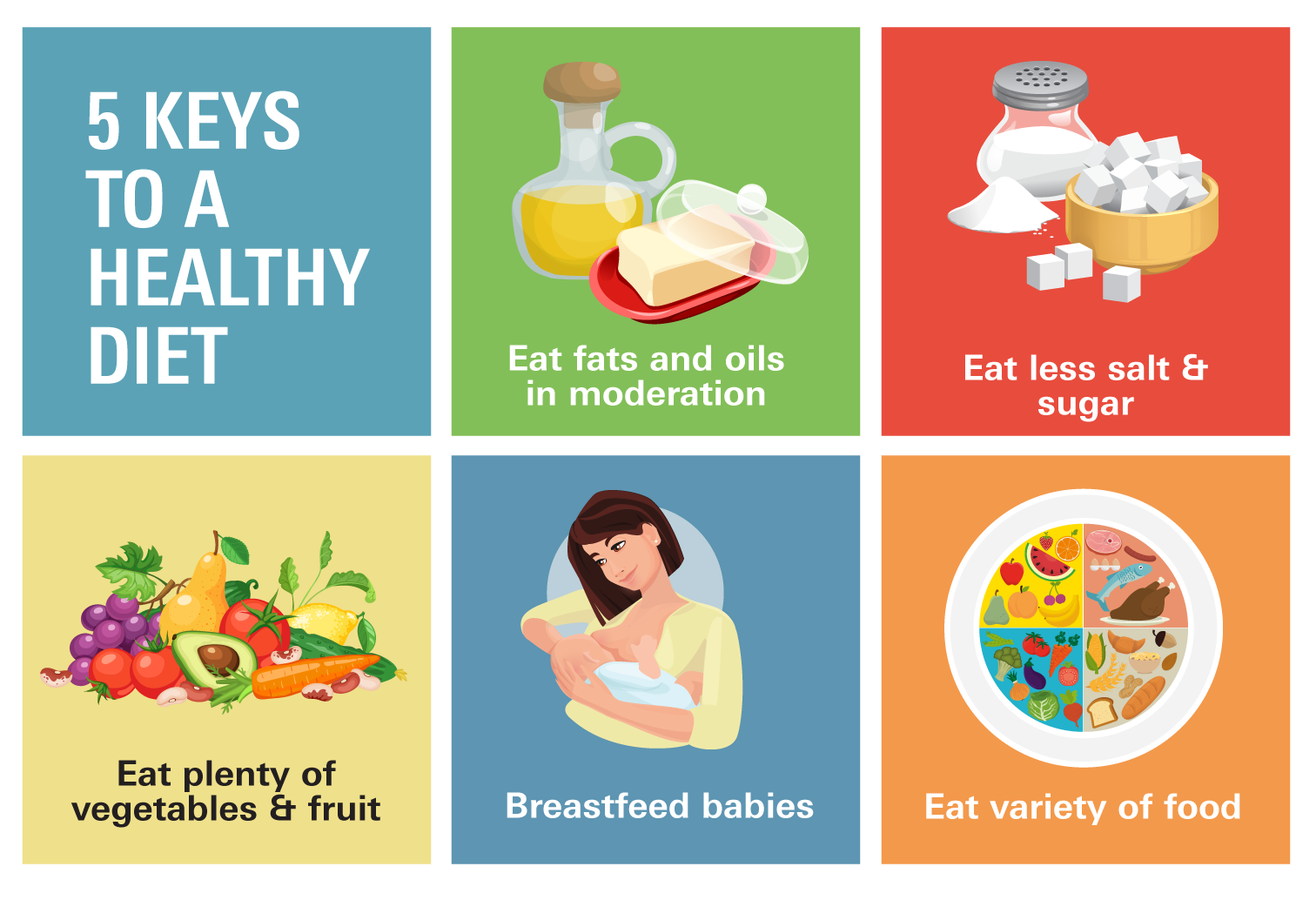How Your Nutrition Can Affect Your Health
When children have a healthy diet, it can help them grow, develop properly, and reduce their risk of chronic diseases. For adults, eating healthy can help them live longer and have a lower risk of chronic health conditions including obesity, heart disease, type 2 diabetes and certain cancers.
Unfortunately, fewer than 1 in 10 adults and adolescents eat enough fruits and vegetables as recommended by the Dietary Guidelines for Americans 2020-2025. Additionally, 9 in 10 Americans over the age of two eat more than the recommended amount of sodium. This has led to an increase in the rates of non-communicable diseases in America such as heart disease, stroke, and diabetes.
Harmful effects of poor nutrition
There are quite a few diseases that poor nutrition can contribute to; the most common ones are listed below:
- Heart disease and stroke: On average, Americans consume 3,400 mg a day of sodium, far exceeding the current guideline recommendations of less than 2,300 mg per day. Over 70% of this sodium consumption comes from packaged, processed, store-bought, and restaurant foods. Consuming too much sodium over time can lead to an increase in blood pressure (hypertension) which in turn, can increase your risk of heart disease and stroke.
- Type 2 diabetes: The number of US adults diagnosed with diabetes has nearly doubled in the last 20 years. Additionally, patients with increased blood sugar at risk of developing diabetes (a condition known as “prediabetes”) are estimated to affect 88 million US adults, with the majority of them unaware they have this condition.
- Cancer: There are at least 13 types of cancers that are associated with obesity, including breast cancer, uterine cancer and colorectal cancer, which make up roughly 40% of all diagnosed cancers.
- Overweight and obesity: In the United States, 19% of people aged 2 – 19 years and 40% of adults are considered obese. Obesity costs the US health care system roughly $147 billion a year and can actually increase one’s risk of developing all the diseases listed above.
- Deficits in brain function: Having low levels of iron during pregnancy and in early childhood is known to be associated with mental and behavioral delays in children.
What can we do?
The World Health Organization (WHO) has created a list of 5 keys to a healthy diet that when followed can help reduce one’s risk of disease.

- Eat fats and oils in moderation: Fats and oils are a high source of energy but eating too much can be harmful to your health. While it is okay to consume unsaturated fats like vegetable oils in moderation, people who consume too many trans-fats or saturated fats (like those found in butter) are at a higher risk of developing heart disease or stroke. Try avoiding baked or fried foods, limit the amount of processed meats you eat, and opt for low-fat versions of dairy products when available.
- Eat less salt and sugars: Limit the amount of soda and fruit juices that you drink that are high in sugar and choose something like fresh fruit instead. Also, limit the amount of salt used when cooking, including those condiments that are high in salt (like soy sauce).
- Breastfeed babies and young children: The WHO recommends breastfeeding babies exclusively until 6 months old and then continuing with breastfeeding while introducing other nutritious foods until the baby is 2 years old. Babies who are exclusively breastfed have a better resistance to childhood illnesses such as diarrhea, respiratory infections, asthma, sudden infant death syndrome (SIDS) and ear infections. In later life, those infants are less likely to become overweight or suffer from diseases such as diabetes and heart disease.
- Eat a variety of foods: Eating a variety of whole and fresh foods such as legumes, vegetables, fruit, and foods from animal sources (meat, cheese, milk) can help children and adults attain the proper amount of essential nutrients. Doing this can also help you avoid the “bad” foods mentioned above and will be easier to follow rather than eliminating certain foods by following the latest diet trends. A healthy, balanced diet can improve children’s growth and development, and for older adults, it will help them live a healthier and more active lifestyle.
- Eat plenty of vegetables and fruit: Try eating a wide variety of fresh fruits and vegetables and keep them raw. Cooking vegetables and fruits can cause a loss of important vitamins that your body needs. Also, if you opt for canned or dried versions, try choosing ones without added salts and sugars. Fruits and vegetables are good sources of vitamins, dietary fiber, antioxidants, minerals and plant proteins. These can significantly lower your risk of obesity, diabetes, heart disease, stroke and certain types of cancers.
Conclusion
For people with chronic health conditions, healthy eating can help manage these conditions and prevent more serious complications from occurring. For children, healthy eating can help them learn better and for adults, can help increase productivity. Better nutrition is related to improved overall health, stronger immune systems, safer pregnancy and childbirth, lower risk of non-communicable diseases (such as diabetes and cardiovascular disease) and promotes longevity. Start taking small steps towards healthy nutrition today and try following at least one of the above 5 keys to a healthy diet.
References
(1) CDC
(2) WHO
